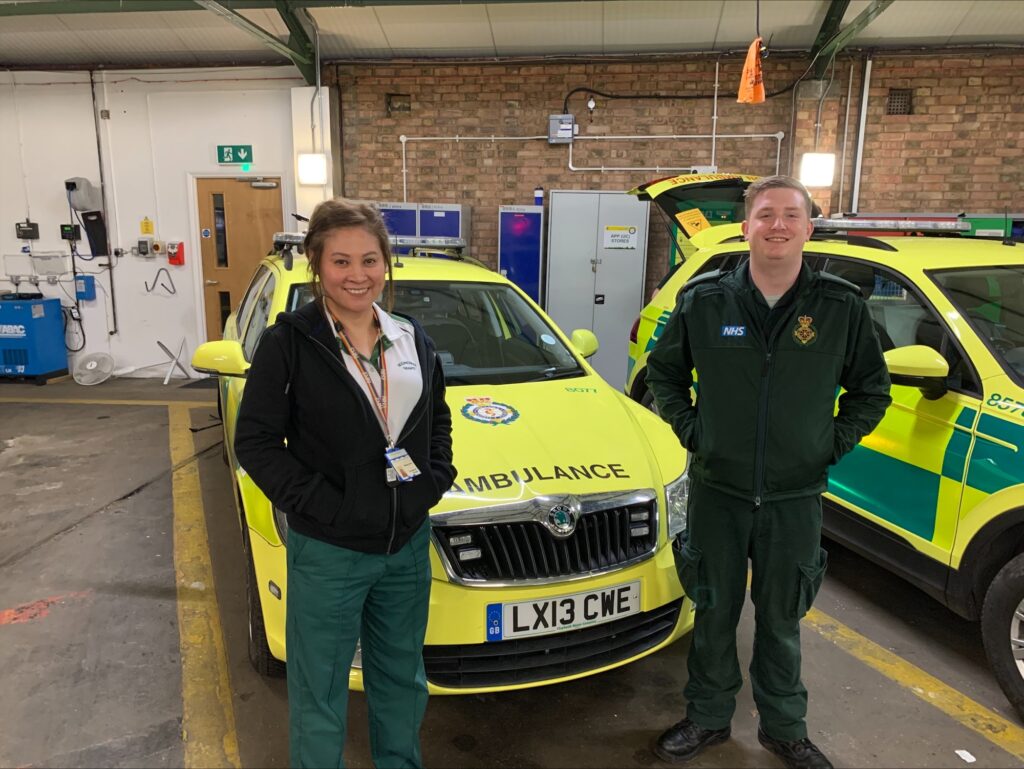
A pilot in north London using urgent community response cars means many more people are receiving vital treatment at home instead of being taken to hospital by ambulance, successfully reducing unnecessary trips to Emergency Departments.
The cars respond to urgent, but not immediately life-threatening, 999 calls to patients in their own homes or care homes. Each car has a London Ambulance Service paramedic and a local community services clinician. Their combined skills and knowledge of local services mean they can often treat or refer patients to other services rather than taking them to hospital when this is appropriate and safe.
This frees up ambulances to attend patients in life-threatening and emergency situations and reduces waiting times.
The pilot went live in February 2023 with two cars, one in Barnet and one in Enfield. The next phase, which will run until the end of March 2024, will see the impact of the cars tested during the winter period and the pilot will be expanded to cover Haringey as well.
Two key measures of success were recorded – rate of conveyance to hospital and ambulances saved. From February to June 2023, the cars saw 926 patients and cared for 672 of these without needing to take them to hospital, saving 441 ambulance despatches.
The cars respond to calls which are not immediately life-threatening faster on average than double-crewed ambulances which is a benefit to patients, particularly those who have fallen.
A large proportion of callouts are to people who have fallen in their home. While the paramedic and community staff treat the primary reason for callout, community healthcare staff attending these callouts have also been able to complete other tasks. These include referrals to other community services, assessment, and orders for equipment to prevent falls, and assistance with tech such as pendant alarms, providing longer-term benefits to patients as well as avoiding hospital admission.
Patient feedback
One patient said: “It is a brilliant service and will save a lot of time. I have always gone into the hospital to have my catheter changed, and I am always conscious of other patients, that may need more urgent care, so me not going into the hospital may mean those patients are seen sooner.”
Another patient fed back: “I had a fall at home. I was panicked and very shaken. However, I was put at ease immediately upon the paramedic and occupational therapist arriving. They were friendly and kept my spirits up. They used the key safe to get in and helped me get up from the floor.
“During the visit they were concerned about me and they did not just rush off. They also checked my vitals, and the therapist completed an assessment around the house checking the equipment that I had and checked if I needed anything.
“It was identified that a bed rail was necessary. Later that day, I was informed that the therapist had ordered one for me. Also, I have had the phone call from the pendant alarm company as my alarm was broke, so that was also fixed and organised by the therapist. From my experience I give them 10 out of 10.”
For more details of the pilot contact: Jason Bossert, NCL ICB Senior Commissioning Manager and Project Lead: jason.bossert1@nhs.net
